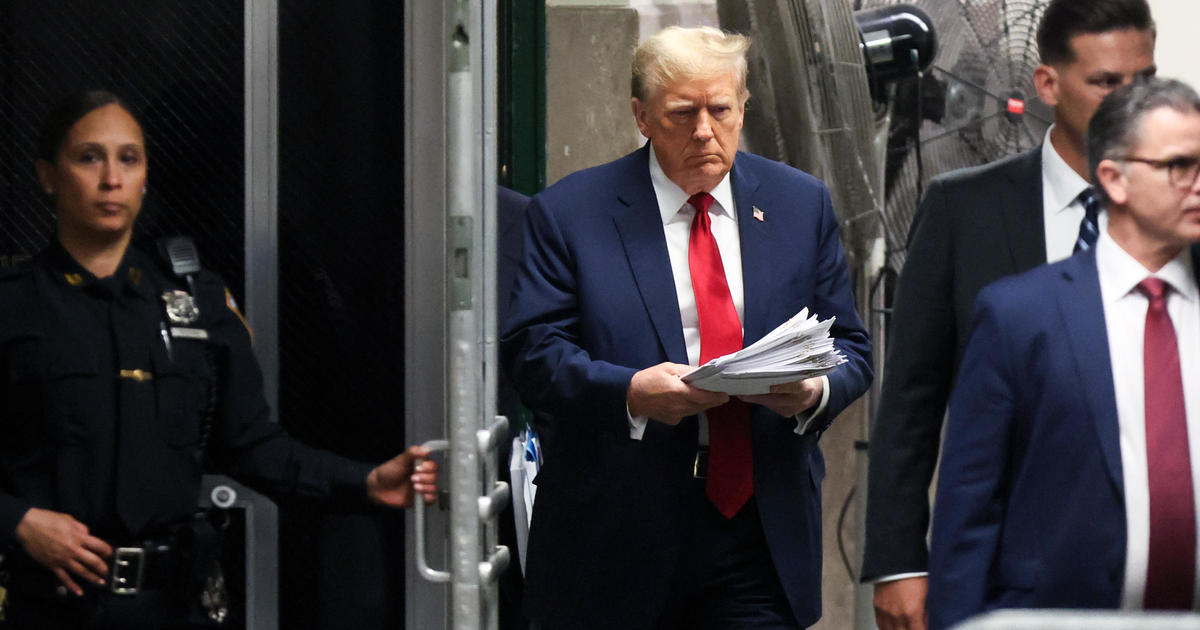Trump attorneys and House Dems fight over subpoena for financial records
Attorneys representing President Trump appeared before a three-judge panel on the D.C. Circuit Court of Appeals for the second time to try to stop House Democrats from subpoenaing the president's financial records from 2011 through 2018.
At issue was whether the House Oversight and Reform Committee's 2019 subpoena of Mr. Trump's accounting firm, Mazars USA, should be enforced after the Supreme Court remanded the case to the lower courts for further litigation and review. House lawyers argued they need the subpoenaed documents to inform potential legislation, like conflict-of-interest and emoluments laws, while President Trump's lawyers maintained a subpoena targeting the personal information of a president is out of bounds.
The three-judge panel, which had previously sided 2 to 1 with House Democrats in upholding the subpoena's validity, first questioned Trump attorney Cameron Norris, who said that Democrats' justification for the subpoena has changed many times, calling the entire subpoena into question.
"There have been a lot of shifts in the explanation" for issuing the subpoena, he said, ranging from comments made by Michael Cohen to the impeachment hearings to various legislative goals. "The committee cannot possibly win on the existing record," he argued.
Judge Naomi Rao, a Trump appointee to the court, asked whether the committee could ever seek any president's personal papers for any purpose, to which Norris responded, "Those occasions will be very rare." Although he cautioned he would not go as far as to say it could never happen, Norris argued such disclosures of persona papers must pass "rigorous requirements."
And Judge Patricia Millett, an Obama appointee, pressed Norris on whether a House subpoena to the Trump Organization itself and not the Mazars accounting firm would have yielded more cooperation from the president. "We've been perfectly willing to negotiate" in the case, Norris said, before stating that similar legal objections would have been raised in that instance, too.
Douglas Letter, general counsel for House Democrats, countered that at the heart of the subpoena was the House's interest in drafting legislation to address, limit, or override a president's conflict of interests. To do that, he said, lawmaker must know what conflicts of interest Mr. Trump may have and what potential relationships he has with foreign governments and companies. These findings would inform future legislation, he said.
"This is a committee that is being extremely responsible…it has very good reasons" for seeking the information, he argued, rejecting the argument that the president has been inclined to negotiate at all in these matters. "They are not giving us anything," Letter said.
"Why is this different?" Letter asked. "Because other presidents...we got this information," arguing that the need for the subpoena only arose because the president refused to cooperate with the House.
It is unclear when the three-judge panel will rule again, but Tuesday's challenge will likely not be the last.
The lawsuit at issue Tuesday is separate from that involving New York District Attorney Cyrus Vance Jr.'s subpoena of Mazars for similar Trump financial records as part of a grand jury investigation, which is now before the Supreme Court for potential consideration.



